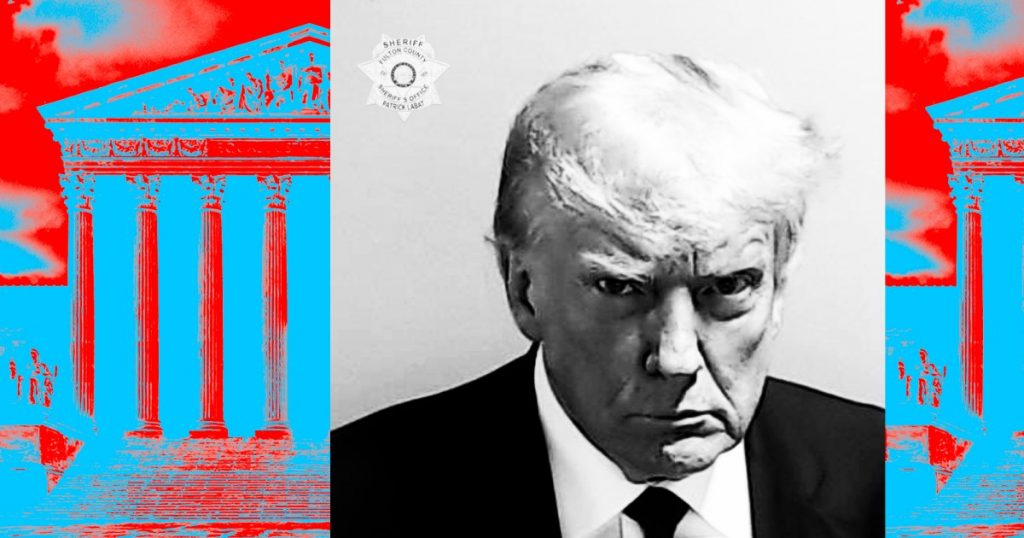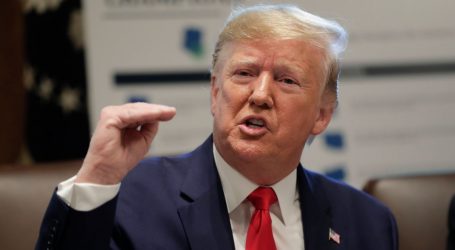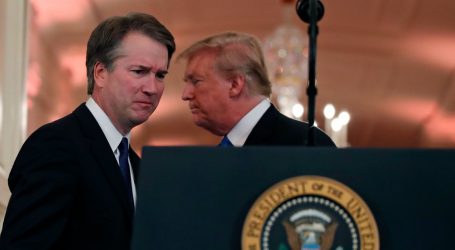Supreme Court Hands Trump a Win and Delays His Election Subversion Prosecution
Mother Jones illustration; Fulton County Sheriff’s Office/AP; Tim Mossholder/Unsplash
Fight disinformation: Sign up for the free Mother Jones Daily newsletter and follow the news that matters.The Supreme Court on Wednesday paused the federal criminal case against Donald Trump over his efforts to subvert the 2020 election—handing Trump a major victory in his attempt to delay his trial until after the November election.
The justices halted the case, brought by Special Counsel Jack Smith in August, while they consider Trump’s claim that he is immune from prosecution for acts taken during his presidency. Their hearing on the matter is not scheduled until April 22.
Trump’s theory of absolute immunity for former presidents is radical and dangerous, elevating the office of the president to a king-like status above the law. Trump’s lawyers are asking the court to find that former presidents cannot be prosecuted for actions taken in the course of their presidency unless they are first impeached and convicted by Congress over the same issue.
The DC federal district court and a federal appeals court disagreed with this theory, leading to Trump’s last-ditch appeal to the Supreme Court. If his theory is ultimately upheld, it could lead to absurd results. During oral arguments before the DC Circuit Court of Appeals, for example, a Trump lawyer acknowledged that by his logic a president could order Seal Team Six to assassinate a political opponent and avoid prosecution for it unless he was first impeached by the House and convicted in the Senate for that crime. According to Sen. Mitt Romney (R-Utah), several Republican senators chose not to convict Trump after he was impeached for his role in January 6 because they were worried about threats to their safety from violent Trump supporters. Imagine a scenario in which members of Congress have the guts to impeach and convict a president who is ordering hits on political rivals—it would not happen.
This is not the only way that Trump’s theory of immunity would subvert American democracy. If a president could attempt to overturn the results of an election with impunity, then the promise of a free and fair election is gone. As the appellate court held on February 9, “We cannot accept former President Trump’s claim that a President has unbounded authority to commit crimes that would neutralize the most fundamental check on executive power—the recognition and implementation of election results.”
For these reasons, it’s unlikely that a majority of the justices will buy Trump’s sweeping immunity claim. But regardless of what the high court eventually holds, the justices’ decision to take up the case delays his trial date, affording him a significant political win as he seeks to retake the White House.
If re-elected, he will presumably be in a position to have his Justice Department halt the prosecution, and escape one of the most significant avenues for accountability for his attempt to overturn the election.





